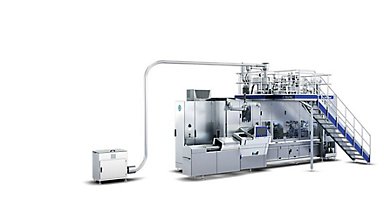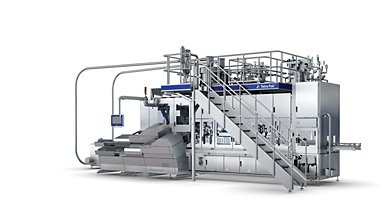Celebrating 10 years of reduced carbon emissions with the world’s first fully renewable package
For a decade, Tetra Rex® Plant-based has helped producers of chilled liquid foods reduce their carbon footprint.
A trailblazer when it was launched in 2015, this package is made of paperboard from Forest Stewardship Council™ (FSC™)1 certified forests and other controlled sources, and from Bonsucro2-certified polymers derived from sugarcane, supporting the responsible management of the world’s forests and the responsible production of sugarcane. And it’s not just the packaging material – the cap and neck are also made from Bonsucro-certified polymers derived from sugarcane.
As we celebrate ten years of Tetra Rex Plant-based, let’s look into what impact it’s had.
The iconic pioneer
Long synonymous with milk and dairy, Tetra Rex has stood the test of time and morphed into countless sizes, formats, and openings suitable for an endless variety of chilled products and every at-home occasion imaginable. And it’s as innovative as it is flexible – from being the world’s first fully renewable package to offering best-in-class printing technology, it continues to stand in a class of its own.
The iconic pioneer
Long synonymous with milk and dairy, Tetra Rex has stood the test of time and morphed into countless sizes, formats, and openings suitable for an endless variety of chilled products and every at-home occasion imaginable. And it’s as innovative as it is flexible – from being the world’s first fully renewable package to offering best-in-class printing technology, it continues to stand in a class of its own.
1 The Bonsucro certificate code of Tetra Pak is PBN-BSC-ChoC-012970
2 The FSC licence code for Tetra Pak is FSC™ C01404.
3 The Bonsucro on-pack label certifies the responsible sourcing of sugarcane.
4 The FSC™ on-pack label certifies that the paperboard comes from well-managed forests and other controlled sources. 100% of Tetra Rex packages are FSC™ certified.
5 Up to 35% reduction in CO2 emissions compared to a standard Tetra Rex package. (Source: based on publicly available LCA from Braskem, November 2013).
6 This means creating cartons that are fully made of renewable or recycled materials, that are responsibly sourced, thereby helping to protect and restore our planet's climate, resources and biodiversity; contributing towards carbon-neutral production and distribution; are convenient and safe, therefore helping to enable a resilient food system; and are fully recyclable.









